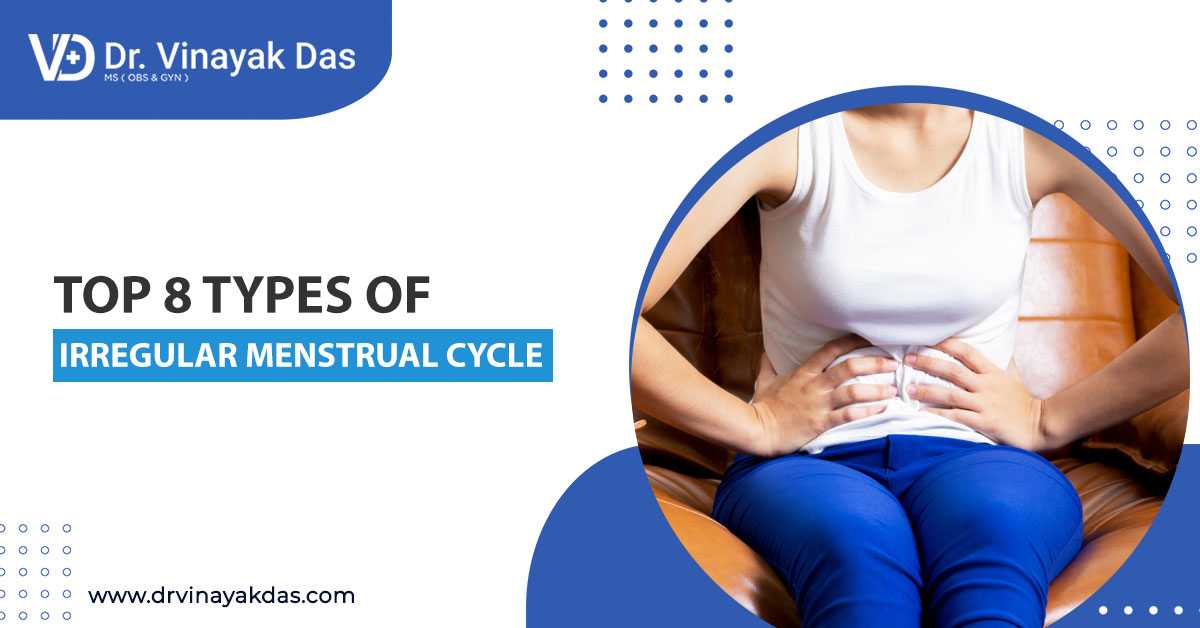Menstruation is normal vaginal bleeding that every woman experiences on each month after they had hit puberty. Normally, the average length of a menstrual cycle is around 28 days but in some instances, it can also vary between 21-35 days. However, there are various types of menstrual disorders that may cause abnormalities in the menstrual cycle while making it heavier with various distressing symptoms. If you experience any menstrual irregularities then without any delay, you must contact the top gynecologist in Siliguri.
Menstrual patterns vary from person to person so the symptoms of menstrual disorders may also vary significantly. In some cases, women may experience heavy bleeding, excessive menstrual cramps, early menopause, bleeding after menopause, or excessively light bleeding that indicates underlying concerns. You must note that there are various uterine problems and ovulation disorders that may increase your risk of developing menstrual disorders which also have the ability to interfere with your fertility rates.
Learn About The Common Types Of Irregular Menstruation
1. Oligomenorrhea
If you’re getting menstruation more than 35-40 days apart then you can be suffering from oligomenorrhea. This is a common menstrual disorder where the woman doesn’t experience normal menstruation every month. There can be various reasons behind this issue such as diabetes, hyperthyroidism, PCOS, extreme physical activity, and primary ovarian syndrome.
2. Amenorrhea
Amenorrhea or absent menstrual periods is a menstrual problem when a woman misses more than 3 menstrual cycles consecutively. There are basically two types of amenorrhea which include primary and secondary. You must know that this condition can develop any time between puberty to menopause causing some painful symptoms.
3. Hypermenorrhea
If you’re experiencing excessive bleeding during menstruation which is more than 90 ml then don’t wait anymore and schedule a consultation with the best gynae doctor in Siliguri. This excessive bleeding is often caused due to Hypermenorrhea which is linked with various underlying conditions such as uterine abnormalities, hormonal disorders, and even liver problems.
4. Dysmenorrhea
Suffering from excruciating cramps during menstruation? It can be a warning sign of dysmenorrhea that often makes the menstrual cycle extremely painful. Women suffering from this menstrual disorder often experience regular and severe cramping, especially in the lower abdomen, thighs, and lower back. Primary and secondary dysmenorrhea are the two main types of this problem which can either be caused due to uterine contractions or underlying gynecological problems.
5. Polymenorrhea
Experiencing menstruation frequently i.e., less than 21 days of gaps is a symptom of another menstrual disorder known as Polymenorrhea. In most cases, women with this disorder often experience menstruation twice a month. This disorder can lead to severe fatigue and increase the risk of developing anemia due to extreme blood loss.
6. Metrorrhagia
Metrorrhagia happens when a woman experiences breakthrough bleeding or irregular bleeding during the menstrual cycle. Herein, the menstruation can be at unpredictable intervals or amounts which may happen either between periods or can be totally unrelated to periods. This disorder can be quite exhausting as you won’t be able to understand the time when the bleeding will happen.
7. Menorrhagia
Heavy or prolonged bleeding is characterized as menorrhagia which is another distressing condition that can disrupt one’s life hugely. A woman suffering from menorrhagia may also pass large blood clots and experience severe cramping which can hamper daily life activities. PID, hormonal imbalance, pelvic infections, and tumors can be causing this disorder.
8. Hypomenorrhea
Not only heavy bleeding but extremely light bleeding during menstruation is also a matter of concern requiring medical attention. If you experience light bleeding that just lasts for 2-3 days then you may suffer from Hypomenorrhea. Stress, intense exercise, low body fat, hormonal imbalances, and intrauterine adhesions are some of the contributing factors of Hypomenorrhea.
Remember that most of these menstrual disorders can be effectively managed by the best gynecologist in Siliguri if diagnosed and treated at the right time. There are various medications and surgical interventions that can control the underlying causes and ensure a normal menstrual cycle with minimal painful symptoms.




